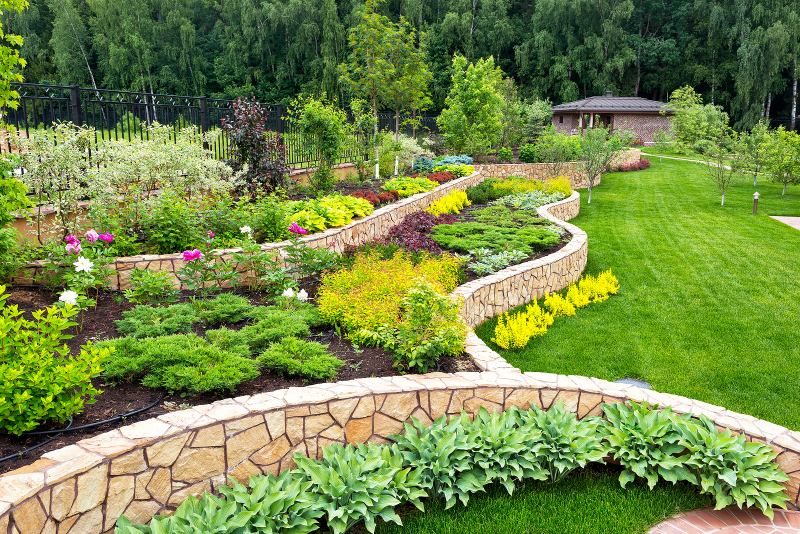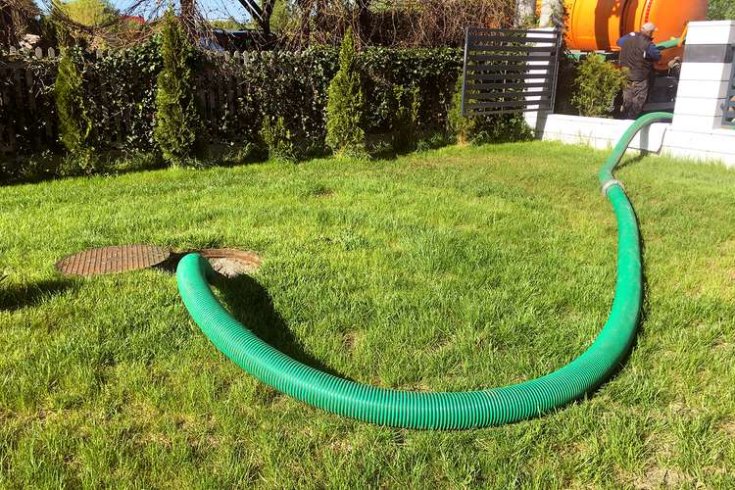
04
You probably already knew that your septic tank could be damaged if you put certain substances into your system. However, you may not be aware that certain landscaping practices can also harm your septic system. In order to avoid causing problems or damage, here are some tips by Charlotte Septic Pros about landscaping around your septic tank.
The area surrounding your septic system is ideal for grass. It happily takes in additional soil moisture, enabling your septic system to continue processing wastewater effectively and efficiently. The majority of grass varieties are acceptable, but you should ensure that they are simple to maintain through regular, light mowing. In an ideal world, you'll want to keep maintenance to a minimum. In essence, you should avoid performing any maintenance that necessitates driving heavy mowers or other machinery over any pipes that are close to the surface.
While grass is acceptable, you should probably avoid planting gardens. You actually have a lot of unoccupied space atop the septic drain field. You might think that planting vegetables there would be a great idea. Hold off on that urge. First of all, anything that grows there will have grown by using wastewater. Even though that may not be a big problem, you should avoid any deeper roots that could grow into your drain field. For optimal performance, those tunnels need to remain clear and open. Depending on what you plant, a garden can cause serious damage over time.
You should stay away from plants that need a lot of water to grow. The issue with these plants is that if they don't get enough water, they will send deeper roots that could damage your leach pipes. Plants that don't need a lot of water are great options for covering up drain fields, but you shouldn't overwater them often. Even though you might still need to water them from time to time, drain fields are fine when it rains. Plants with shallow root systems are best suited for landscaping around a septic system if you really want to do so. These typically also resist droughts better. If you want to plant around your drain field but still feel skeptical about which type is appropriate, ask a septic company for advice.
Your septic tank and drain field can be damaged by animals grazing there. Animals that graze eat away at the vegetation that covers your drain field, exposing parts of your septic system. Prevent grazing above your septic tank if you live in an area with a lot of wildlife. There are a number of ways to discourage grazing over your septic tank. To keep animals out of your septic tank area, you can install landscaping or fencing. Around your drain field, you can also use animal repellents that make unpleasant smells and keep animals away.
Regular upkeep is required for your septic system. The landscaping surrounding your septic system should also be regularly inspected. As a result, you should have septic tank pumping and inspection once every three to five years. Take some time while you're having that done to look for any shady roots that might have made it into dangerous territory. A network of roots that get their way into your system and pipes or tank is the last thing you want. Root damage repair can be expensive. The last thing you want is to call a septic company for repairs because you forgot to have the septic tank pumping in Cornelius, NC.

28
Why Is Sewage Backing Up into My Tub? When wastewater starts rising into your bathtub, it’s more than just unpleasant—it’s…
Read more
22
Can Bacteria Additives Eliminate the Need for Pumping? If you own a home with a septic system, you’ve probably seen…
Read more
12
A single slow drain in your home can feel like a minor inconvenience. Maybe the sink takes a little longer…
Read more
05
Are Slow Drains a Septic Issue or Just a Clog? Slow drains are one of those household problems that start…
Read more
02
What Septic Service Techs See That Homeowners Miss Most homeowners only think about their septic system when something goes wrong.…
Read more
21
Simple Habits That Protect Your Septic System A well-functioning septic system does its job quietly, but the moment something goes…
Read more
14
Pump Now or Pay Later: The Real Cost of Skipping Maintenance A properly functioning septic system is easy to forget…
Read more
11
Why Your Septic System Always Acts Up at the Worst Time Homeowners often feel that septic problems strike at the…
Read more
04
Early Warning Signs Your Septic Tank Needs Pumping For homeowners who rely on a septic system, routine maintenance is not…
Read more
29
Why Does My Septic System Smell Fine One Day and Terrible the Next? If you own a home with a…
Read more